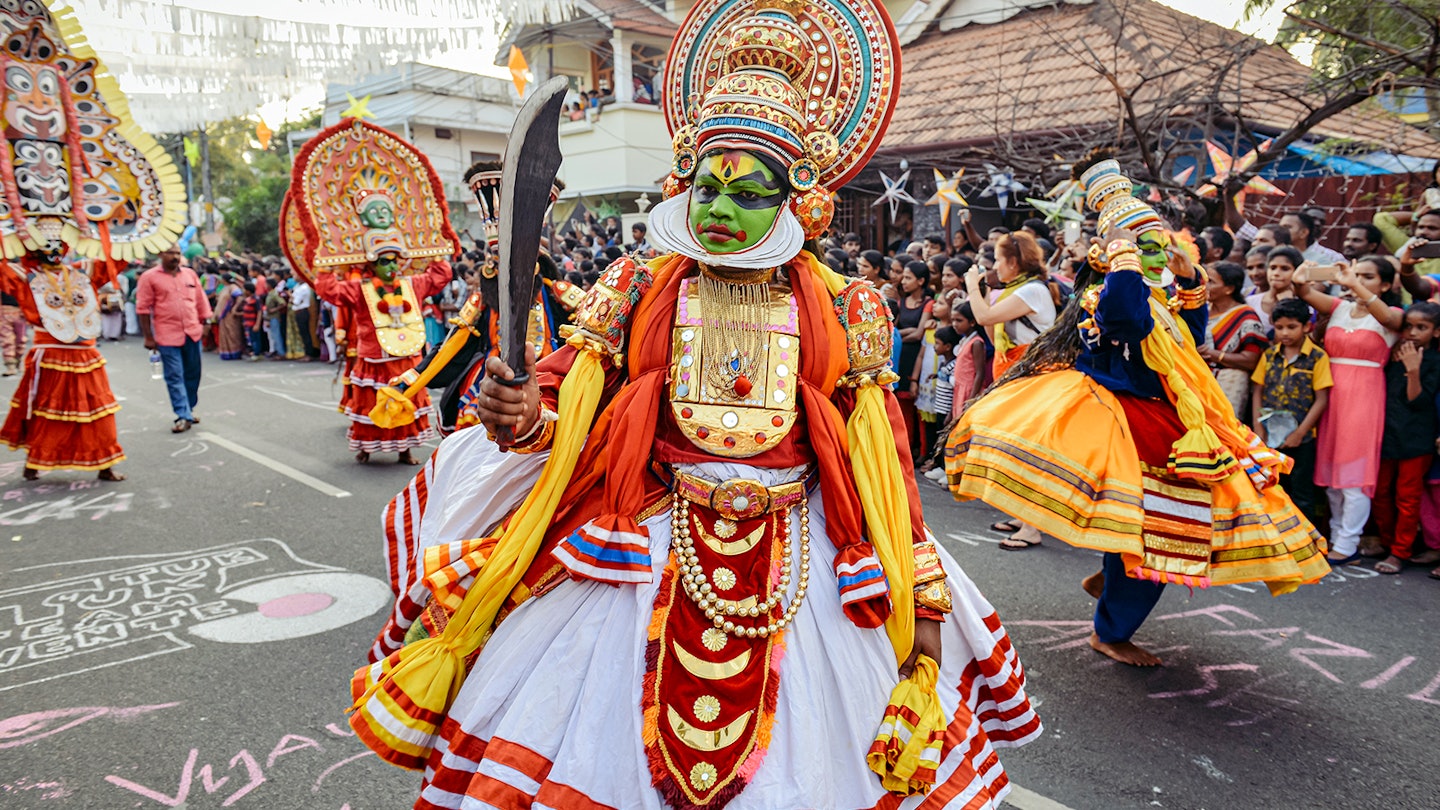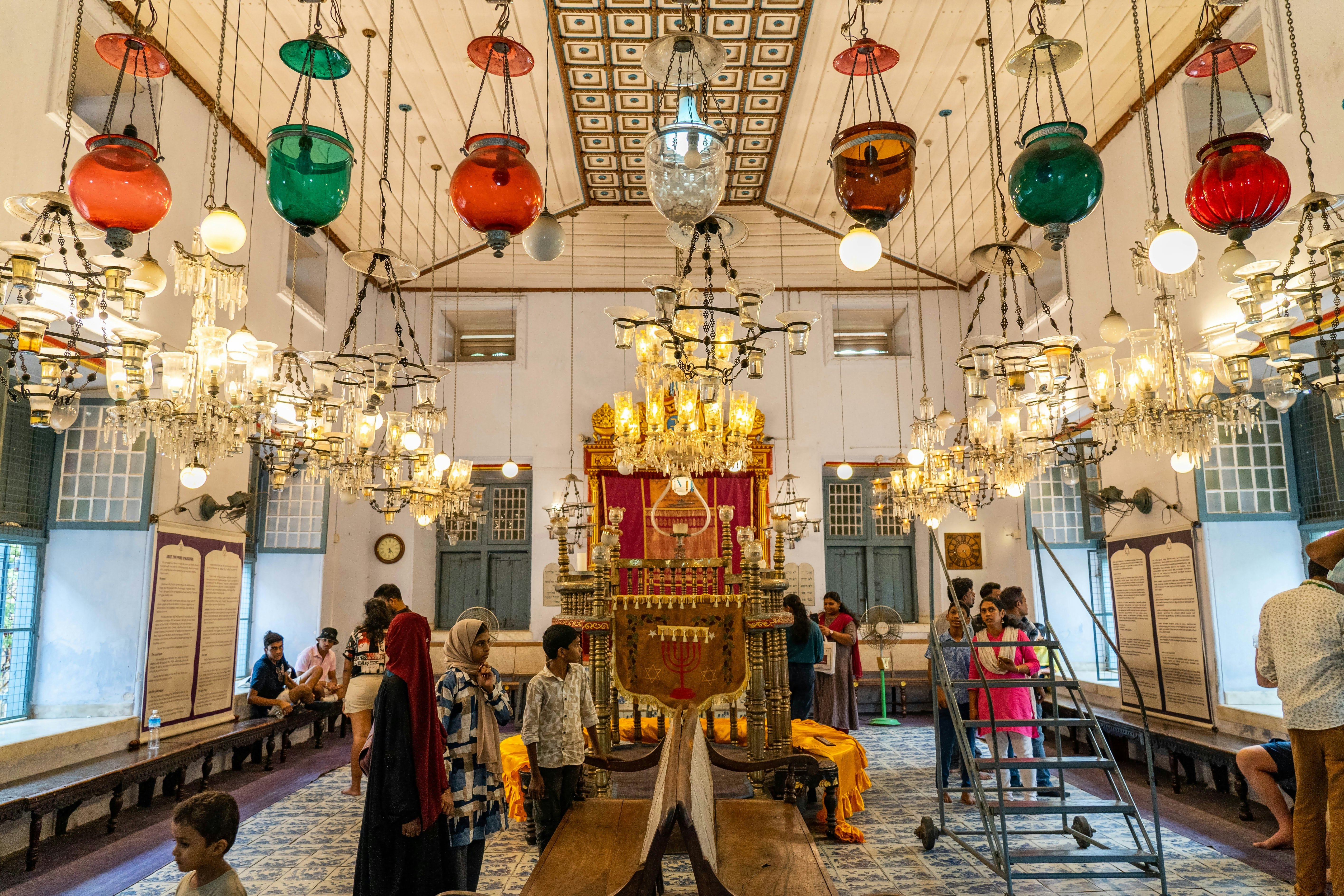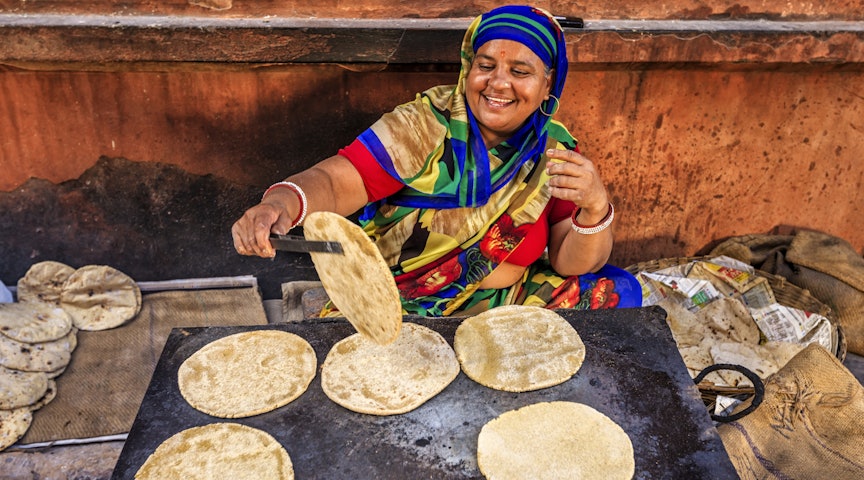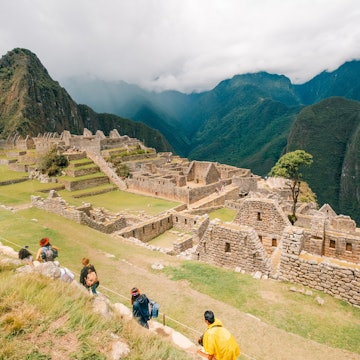

Kochi is a laid back town with a diverse cultural heritage. Dmytro Gilitukha / Shutterstock
Many who touch base with Kerala in Kochi (Cochin) simply make a mad dash for the palm-fringed backwaters, which unravel just south. But linger for a weekend and you’ll be hooked by the charisma, laid-back vibe and delicious masala mix of culture in this tropical port city, which sits astride a cluster of peninsulas and little islands in the Arabian Sea.
Moving to its own incredibly relaxed beat, Kochi is India on a chill pill: walkable, easygoing and home to a wildly varied cultural heritage reflected in sights such as medieval Chinese fishing nets, Jewish synagogues, Portuguese colonial villas and the crumbling remains of the British Raj.
Once at the centre of a lucrative spice and tea trade, Kochi has drawn traders, salt-bedraggled explorers and travellers to these shores for centuries. Today, its doors are still wide open to welcome visitors in family-run homestays that offer a direct route to Kerala’s soul. Two days here gives you a great taster.
Saturday
Morning
Breeze over by ferry from Ernakulam on the mainland to Fort Kochi, where you’ll feel the city’s historic heartbeat. Refresh with some good strong coffee (rare in these parts) and a breakfast of French toast, pancakes and fresh fruit at Kashi Art Cafe, which has a Zen-like garden and rotating exhibitions of contemporary art. From here, turn onto Princess Street to reach St Francis Church, built by Portuguese Franciscan friars back in 1503, making this India’s oldest European church. Behind the faded yellow façade, the barrel-vaulted interior attracts pilgrims who come to gawp at the tombstone of great Portuguese navigator Vasco da Gama – the first European to reach India by sea – who died in Kochi in 1524.
On nearby Napier Street, nip into Fabindia to browse its rainbow assortment of fair-trade silks, cottons and handicrafts, then stroll south to the Indo-Portuguese Museum for the inside scoop on one of India’s oldest Catholic communities. Lodged in the 16th-century Bishop’s House, its collection includes precious teakwood altarpieces, vestments and silver processional crosses.

Afternoon
Retrace your steps back to the waterfront, where you’ll find stalls offering beverages perfect for cooling off a bit; try sugarcane juice, sweet chai or lime-ginger soda. Stop at the fishmongers to choose your fish or seafood (whatever’s fresh that day – be prepared to bargain), and then head over to one of the shacks on Tower Road to have it cooked.
You can’t, of course, fail to miss the half-dozen giant cantilevered Chinese fishing nets, or cheena vala as locals call them. A throwback to the 14th-century court of Kublai Khan, these humungous spider-like, 10m-tall nets demand five or six wiry fishermen to manage their counterweights at high tide. Watch them lowering the rope pulleys and hauling in the catch. It makes for some terrific photo-ops (have some small change handy for tips), especially as day softens into golden evening and the nets are silhouetted against the ripe peach of a setting sun.
Evening
The Kerala Kathakali Centre is hands-down one of the most atmospheric places to catch a traditional Kathakali dance-drama performance, where stories of love, lust and power based on the Ramayana, the Mahabharata and the Purana are played out with elaborate mudras (hand gestures) and facial expressions to the frenzied beat of a drum. Arrive at this intimate, wood-lined theatre around 5pm to see the flamboyant make-up and costume fitting before the actual show (6pm to 7.30pm) – it’s pretty spellbinding.
Afterwards, go for dinner at Fusion Bay, a sweet-and-simple family-run affair that’s steps from the theatre. Here you can dig into sumptuous Kerala-Syrian fish dishes prepared pollichathu style (with masala spices and grilled in banana leaves). Many also rave about their pappas (Portuguese-style fish cooked in spices, lime juice and coconut).
Sunday
Morning
Ease into the morning at Loafers Corner, a nicely chilled, minimalist-cool cafe in a 200-year-old Dutch-Portuguese heritage building. Snag a window booth or sit in the courtyard for a decent espresso, cardamom lassi and breakfast picks like olive-herb omelettes. From here, hop in an auto-rickshaw for the short drive south to Mattancherry and Jew Town, Kochi’s old bazaar district and former spice trade central. When you’re hailing a tuk-tuk, just pay for the ride and avoid cheap tours of the district where drivers get commission. Go for a nose around the shops lined with heaving sacks of chillis, rice and fragrant spices from Kerala’s hills.
When the Portuguese wanted to impress the Raja of Kochi, Veera Kerala Varma (1537–65), they gifted him Mattancherry Palace in 1555, an architectural stunner that blends Keralan and colonial styles, with a sloping roof and ornate wood-carved ceilings. Top billing here goes to the extraordinarily well-preserved Hindu murals dancing colourfully across walls, which show scenes from the Ramayana, Mahabharata and Puranic epics.

Afternoon
After a quick lunch at first-floor Café Crafters (try the fermented rice pancakes, or appam), cross the street to Pardesi Synagogue, the oldest of its kind in India. Built in 1568, it was partially destroyed when the Portuguese attacked the Jewish population in 1662, but it was restored to its former glory by the Dutch two years later. Its interior is a lavish ensemble of antique crystal chandeliers, coloured glass lanterns and hand-painted Chinese tiles. Bear in mind that modest dress is required and photographs are not permitted.
Across the way from here is the Ginger House, where you can sit by the water’s edge and watch the ferries breeze by over a ginger-laced soda, lassi or ice cream. This heritage boutique hotel also harbours a rambling attic of antiques that’s more impressive than many museums, exhibiting everything from richly bejeweled chests to life-sized elephant carvings and a giant Keralan snake-boat.
Evening
Back in central Fort Kochi, ramp up the romance on your final evening with dinner in the enchanting candlelit garden at chic Malabar Junction. The menu leaps creatively between Indian and Western flavours, striking well-spiced balance in dishes like tiger prawns with crispy poppadum and masala. The seafood platter is outstanding, too. For a more casual ambience, head upstairs to contemporary DiVine lounge for Indian wines by the glass and tapas. Lemony chenin blanc whites and full-bodied cabernet sauvignon reds pair well with the likes of roti tacos, cheesy crab with black garlic and creamy leeks, and chocolate samosas with mango sauce.
Where to stay
Homestays are the icing on the cake in Kochi. There are 200 or so to choose from, ranging from bare-bones to rather fancy, with the pick of places huddling in the historic streets of Fort Kochi. Some have air-con (advisable) and the vast majority offer a heartfelt welcome and an insight into family life. Among our faves are Michaela Homestay, where host Michael is full of entertaining stories and goes above and beyond to please. Set in pretty gardens, peaceful Heavenly Homestay has slick, modern rooms and excellent breakfasts. Cozy Leelu has immaculate rooms, a roof terrace and small-group cookery classes, where you can learn to make homemade garam masala and Keralan dishes like fish curry using family recipes.
Getting there
Cochin International Airport is 30km (an hour’s bus ride) northeast of Ernakulam. From mainland Ernakulum, there are ferries to Fort Kochi jetties (Customs and Mattancherry) every 25 to 50 minutes between 4.40am and 9.10pm.
Take your India trip with Lonely Planet Journeys
Time to book that trip to India
Lonely Planet Journeys takes you there with fully customizable trips to top destinations–all crafted by our local experts.





















